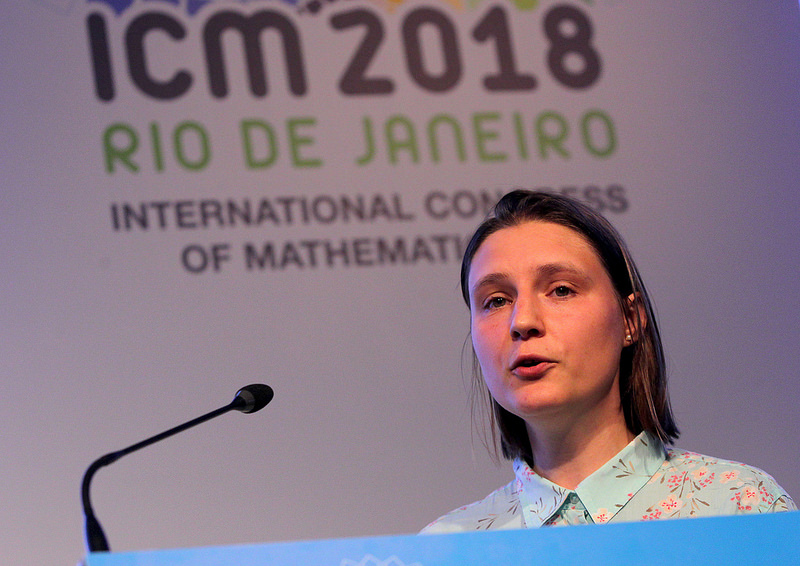August 2, 2018, 6:10 pm

Armed with a sharp mind and sense of humor, Ukrainian Maryna Viazovska can’t recall an exact eureka moment in her solution to the centuries-old sphere packing problem. It was a gradual process. “Of course, I get excited about lots of new ideas, but it takes time to work them out,” she grinned. “Lots of my great ideas don’t go anywhere.”
In 1811, German mathematician Johannes Kepler proposed a conjecture about the optimal density of spheres in a given space. The basic idea is simple. Imagine a box full of oranges. What is the most efficient way to arrange them? While seemingly simple, it took until 1998 for American Thomas Hales to prove the conjecture – thus consolidating the theorem.
Read more:
While the visualization of a box of oranges may be easy to understand, but what does an orange with eight dimensions look like? Every point in a sphere is equidistant from its center, no matter how many dimensions there are. To solve this problem in the eighth and 24th dimensions, mathematicians needed to discover an auxiliary function. Until Viazovska’s breakthrough, no one had managed to figure it out. “We couldn’t find this magic function,” she recalls. Her simple solution was published in a 22-page paper.
Viazovska’s work has potential reverberations in several other fields, including energy minimization, free interpolation formulas, and signal processing. But, she is not sure where her research might apply. “I’m a theoretical mathematician, so I don’t know that much about practical problems,” she joked.
The Ukrainian mathematician hopes for an even bigger breakthrough and dreams of winning the 2022 Fields Medal: “I’m 33, so I have one more chance,” she said. Solving a mathematical problem that has been around for centuries is no small feat, but Viazovska has biiger ambitions. “The most incredible results come from ideas about problems that no one had before. Questions that no one even thought to ask,” she said. “I hope to do something like that. I can’t tell you much about it, because I haven’t thought of it yet.”